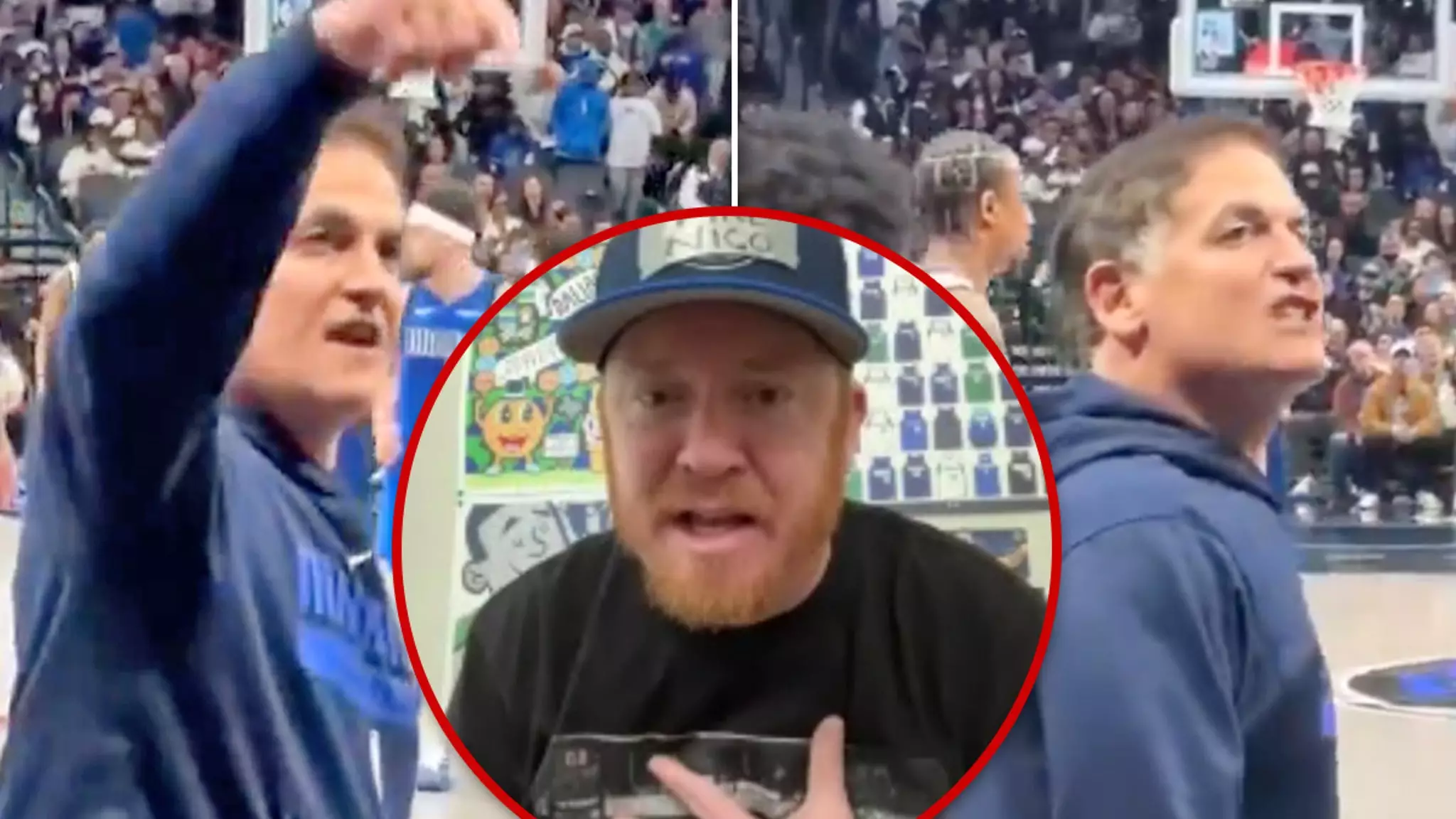In a recent incident that has stirred significant debate surrounding fan behavior and player engagement, a Dallas Mavericks supporter found himself removed from a game after a heated confrontation with team owner Mark Cuban. Chris Taylor’s attempt to rally fellow fans against the Mavericks’ general manager, Nico Harrison, over a controversial trade involving star player Luka Doncic took a turn for the worse when his chanting did not sit well with Cuban. The atmosphere at American Airlines Center shifted dramatically as the confrontation escalated, culminating in Taylor’s ejection from the venue, which he now believes infringed upon his rights as a fan.
The crux of Taylor’s grievance lies in the perception of authority and power dynamics at play. While the Mavericks cited Taylor’s behavior as “disruptive and uncooperative,” claiming it violated the NBA Fan Code of Conduct, the fan argues that Cuban wielded an inappropriate level of influence over the situation. Taylor expressed feelings of being oppressed and intimidated, suggesting that such heavy-handedness from security may reflect a troubling trend of teams being intolerant of fan dissent. The notion that fans can be silenced for voicing opposition, particularly when it pertains to management decisions, raises critical questions about the balance between support and critique in sports fandom.
In light of his ejection and the subsequent treatment by security, Taylor is considering legal action against the Mavericks organization. He recounted a threatening ultimatum posed by security personnel—whether he preferred to leave under his own accord or be forcibly removed. Such an encounter not only exacerbates feelings of disenfranchisement but also raises constitutional questions about free speech rights in private establishments like stadiums. Taylor’s contemplation of a lawsuit could hint at a larger movement where fans seek to assert their rights in environments traditionally controlled by franchise owners.
This incident opens the door for a broader discussion about fan rights in professional sports and the responsibilities that come with being a supporter. While teams must maintain order and uphold their fan codes of conduct, they must also respect the voices of their patrons, particularly during moments of frustration or disappointment. If fans feel unjustly targeted for expressing their grievances, the relationship between teams and supporters risks becoming adversarial. Ultimately, the Dallas Mavericks case could set a precedent for how franchises navigate the often volatile intersection of fan engagement and team authority.
Despite the altercation, Taylor has voiced a desire to continue attending Mavericks games, indicating that while the experience left a negative mark, his passion for the team remains intact. This duality reflects the complexities of fan loyalty—while individuals may vehemently oppose certain decisions made by their teams, their emotional investment often calls them back. As sports organizations continue to grapple with the implications of fan interactions, the need for clear guidelines and fostering an environment where critiques can coexist with support will only become more pressing. As the season unfolds, all eyes will be on how the Mavericks respond to this incident and the precedent it might set for fan engagement in the future.

Leave a Reply